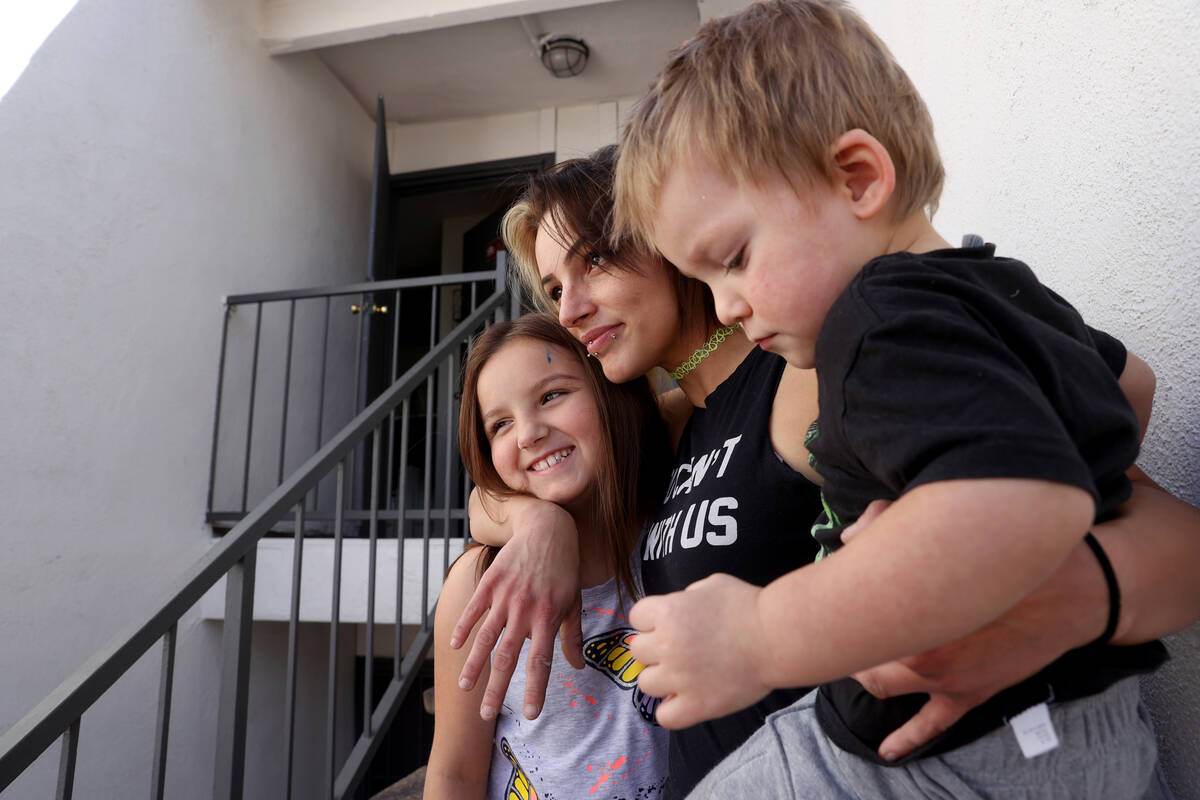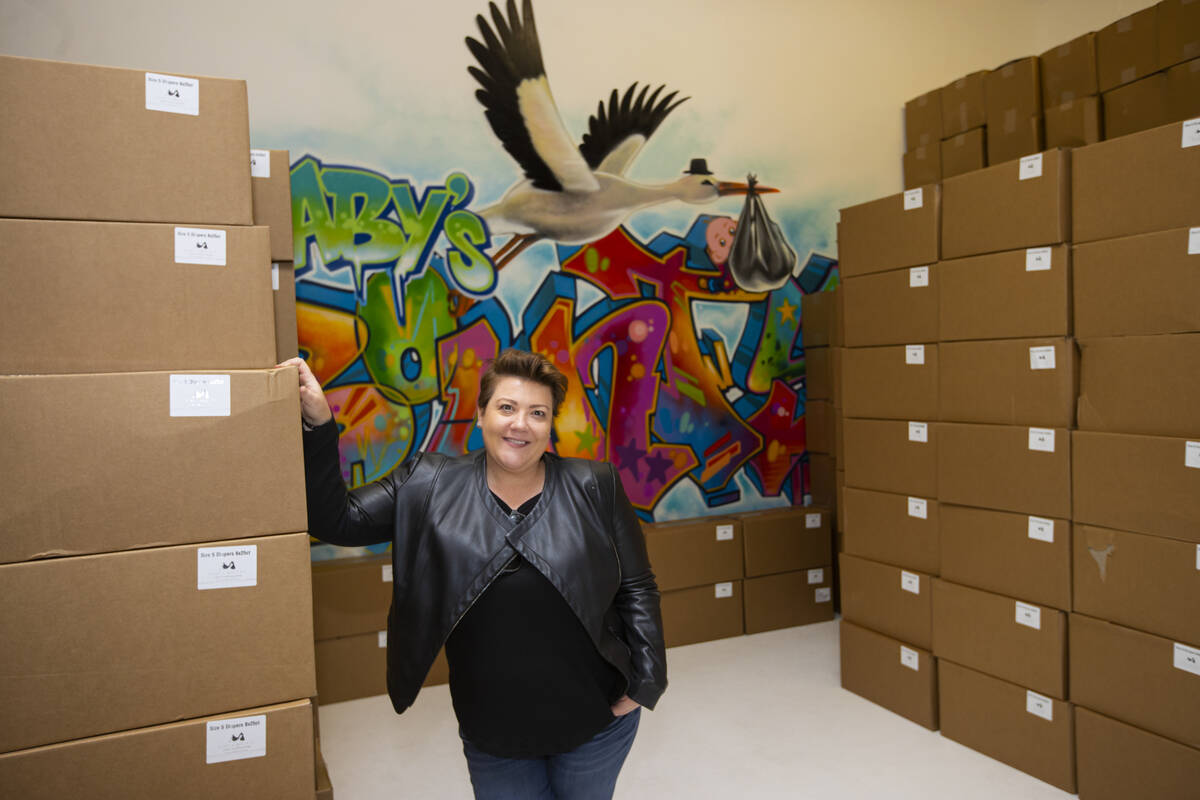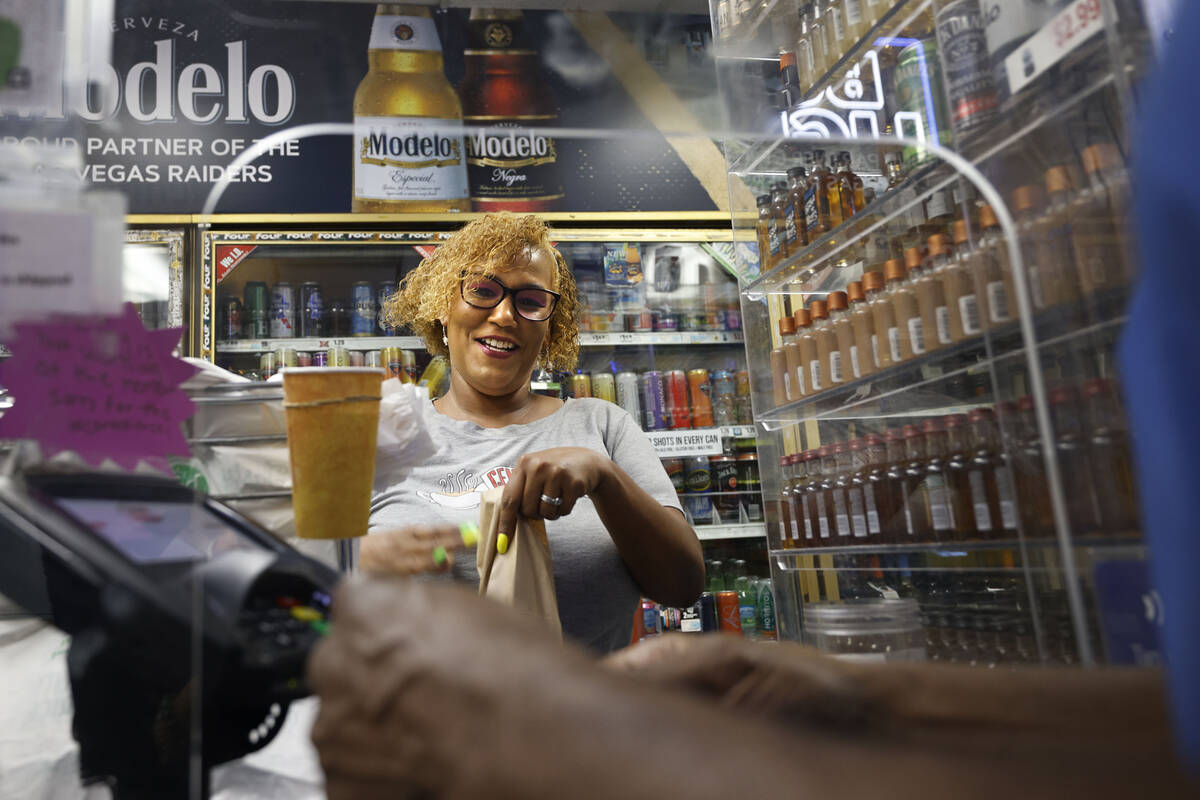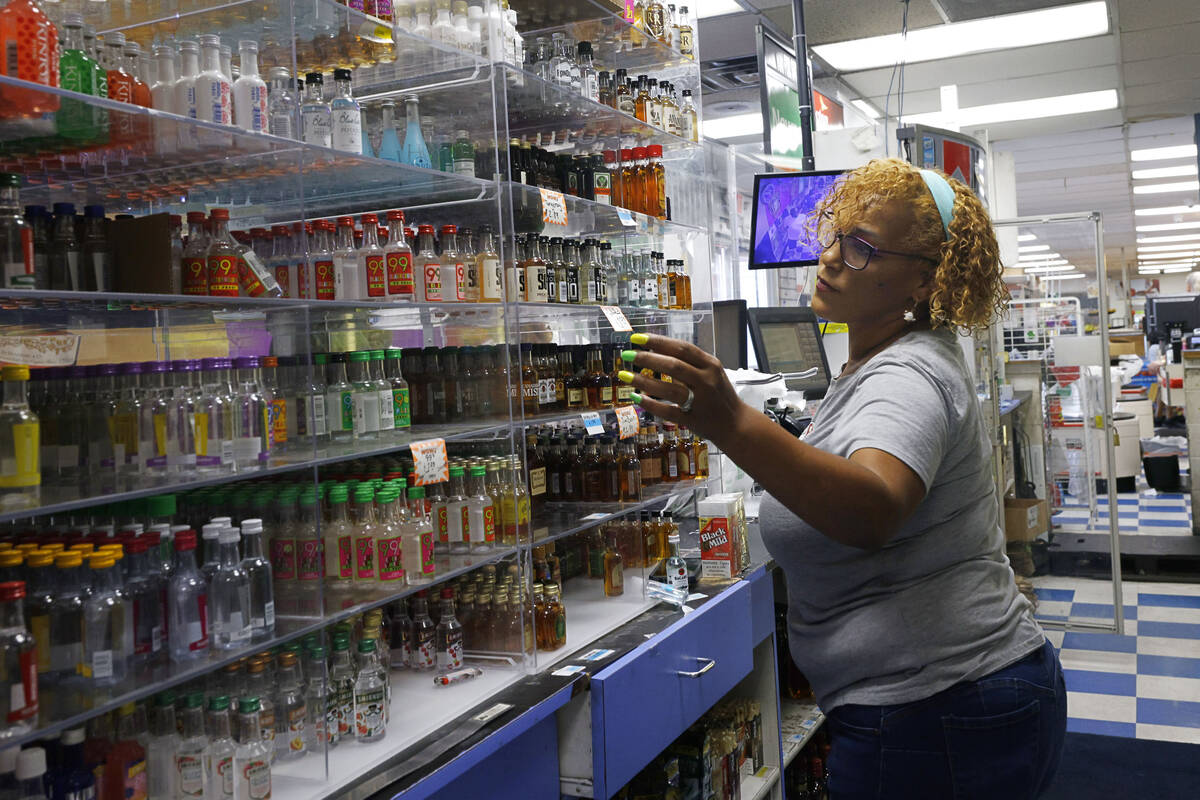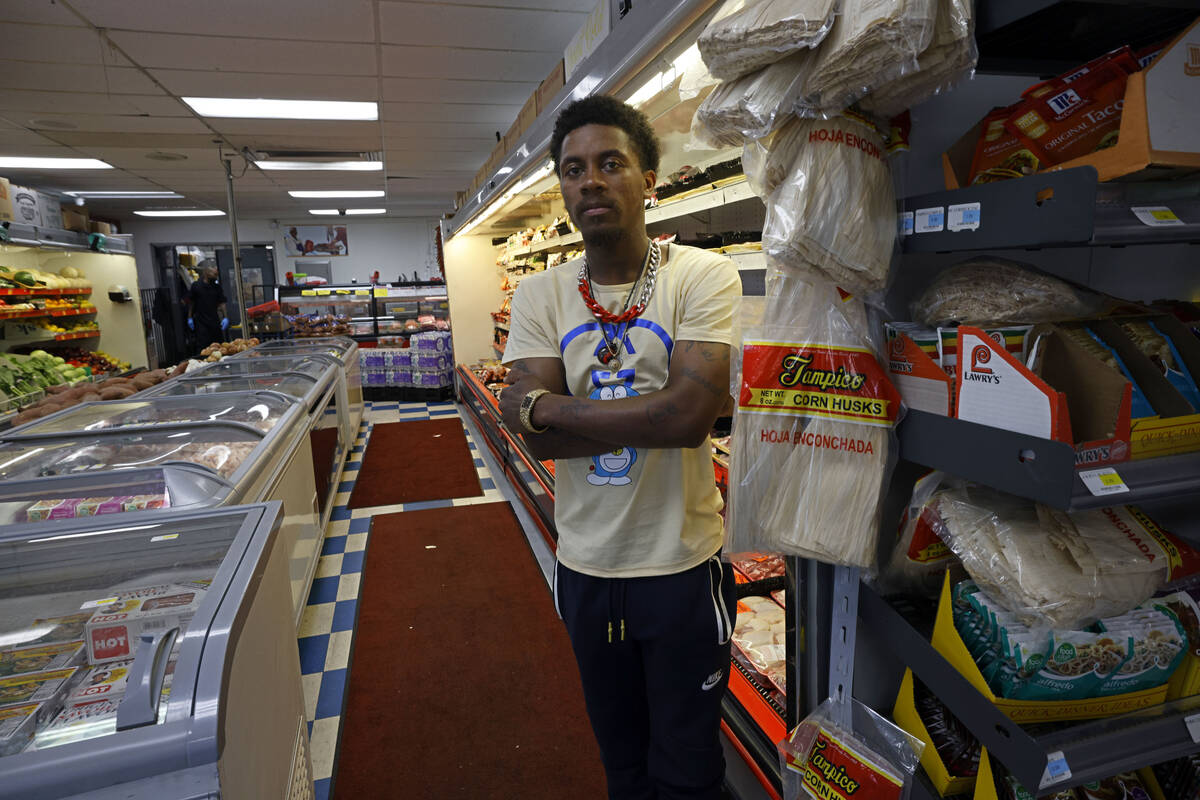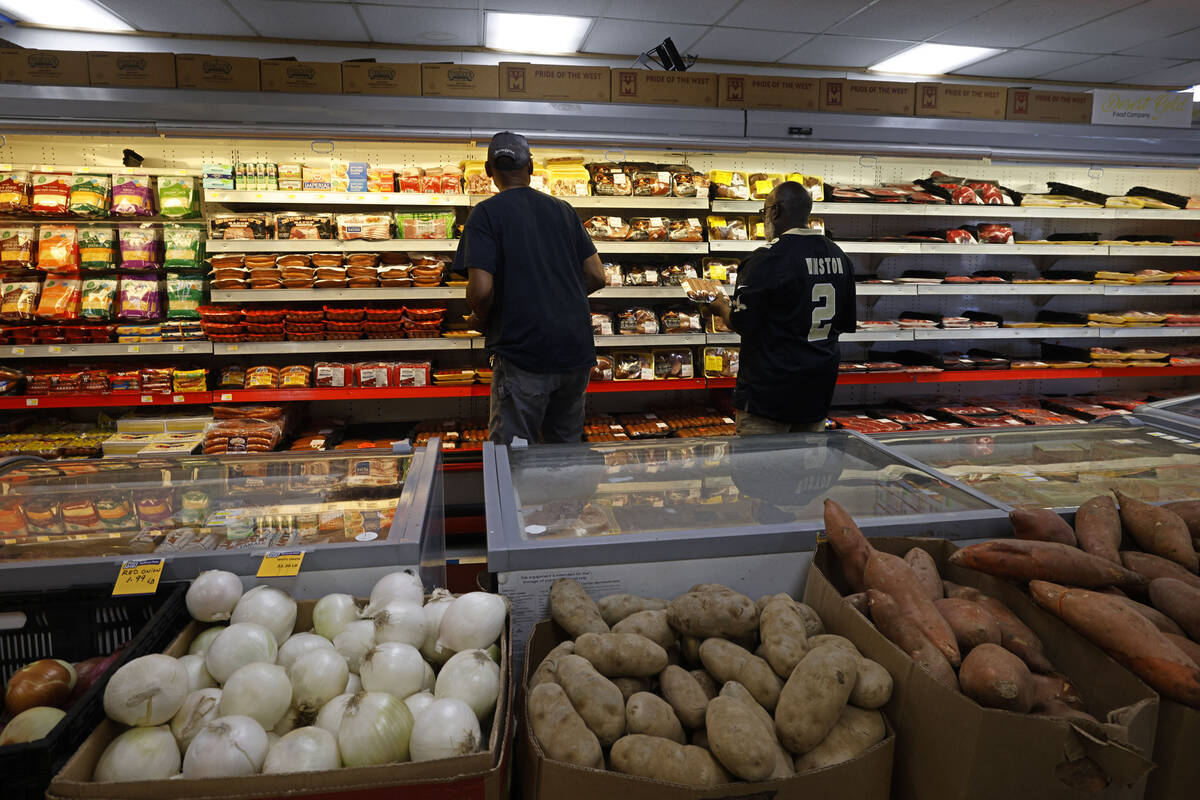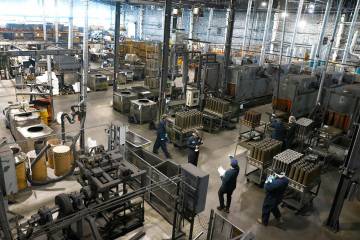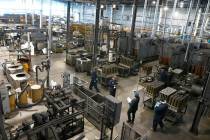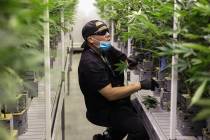‘It’s hard to do both’: Las Vegans weigh the costs of inflation
Eliza Trowbridge was already concerned about high gas prices earlier this spring when she realized someone had damaged her car while trying to siphon gas from it.
“Let’s say I get a job across town,” said Trowbridge, 27. “Now I have to go there five times a week in this broken car. And already somebody tried to steal my gas. It’s just so unfair.”
Fuel, food, clothing, housing and everything in between have seen price increases in the past year. The annual inflation rate in the U.S. reached 8.5 percent in March compared with the previous year. Excluding food and energy, the consumer price index rose 6.5 percent.
These conditions have existed for several months and can be traced to economic behavior in 2020. High consumer demand, sparked early in the COVID-19 pandemic by stimulus checks, online shopping and shifting purchase types, took over just as supply was suppressed by backlogs in global shipping, said Andrew Woods, the director of the Center for Business and Economic Research at UNLV.
“For the everyday person, this is not something that a lot of us have seen in our lifetime,” Woods said.
While many new jobs now recruit workers at a higher wage rate, that still may not cover all inflationary cost increases. It’s left many Las Vegans wondering how to pay for their everyday needs.
“For the average family of four right now, depending on what their employment is, they are, in theory, having less purchasing power and actually losing money — not gaining it — as a result of inflation,” Woods said.
Struggling to afford rent
That disparity is what puzzles Las Vegas resident Alexis Delgado. She’s employed by a temp agency, currently working with Amazon in an assistant human resources role. Her salary falls in the $20-per-hour range — “what used to be considered decent,” she said. But she’s struggled to find an affordable two-bedroom place to live for her and her 10-year-old son.
“I cannot afford the (market-rate) rent, but apparently I make too much for the low-income apartments, too,” she said.
Delgado moved to Vegas a year ago from Phoenix with her best friend and her 12-year-old daughter. The four live together now, but as the kids get older, their mothers want to find housing that gives the children more privacy. Delgado said she can’t find a reasonable two-bedroom apartment for less than $1,600 per month, a cost she cannot support on one salary. She’s considering a second, part-time job to make up the remaining balance.
“It has me worried, honestly,” said Delgado, 36. “I’m trying to get out on my own and support my child. I honestly don’t want to be living with other people the rest of my life. That’s what the dream was: By 30 or whatever, you would be having your own home with your family. That’s not possible nowadays.
“If you have a significant other, that helps. But a lot of people don’t have that or don’t want that and they’re gonna have to live with a roommate or very frugally in a very small space to afford something decent. And if you have kids, that’s not possible.”
Transportation barriers
When Trowbridge’s car was damaged in late March, she worried about the cost of repairs. A new fuel sensor could be more than $150 — a cost she couldn’t budget for while job searching and preparing to go to trade school for cosmetology or massage therapy.
Ultimately, Trowbridge was able to get repairs from a mechanic friend, who charged her $40 to remove the gas hose that got stuck in the tank and other minor problems. But the debacle left her concerned with the extent others were willing to go to in order to save money on gas, which rose by an unadjusted 48 percent in cities compared with March 2021, according to the Bureau of Labor Statistics.
“To me, it blew my mind,” the Las Vegas resident said. “Things are that hard right now. I park right in front of my apartment, I can see the car in front from the window. The risk people are willing to take at the moment is insane.”
High gas prices’ impact goes beyond the individual. At Baby’s Bounty, an infant care nonprofit serving Southern Nevada, officials expected rising costs to result in more attendees at their monthly diaper bank. Instead, they saw a 20 percent decrease in attendance.
“We were really surprised because when gas prices increased, we assumed that that would cause a greater demand for our services,” Executive Director Kelly Maxwell said. “I think that, while that’s true, transportation is now more of a barrier, so they just can’t get here.”
The organization was already dealing with inflationary costs to the products it purchases for clients — like a 41 percent increase in the cost of car seats to date since 2020 and a 14 percent increase in diapers from 2020 to 2021 — but budgeting for a mobile diaper bank to debut later this year has also taken a hit as gas was almost half of today’s price in its initial budget.
“Clients we serve don’t participate financially in any of our programs,” Maxwell said. “We’re having to reach out to our donors, our corporate sponsors, letting them know that, ‘OK, now gas is going to be an additional expense for us as well.’ We factor that into the program costs. Had I known gas prices were gonna go this high, I probably would have ordered an electric van.”
Unavoidable grocery bills
Food, both in grocery stores and at restaurants, has not been spared from inflation either. In March, all food prices rose by an unadjusted 8.8 percent for urban consumers compared with the previous year, according to the BLS.
Those costs have led Mimi Rodgers, the liquor department manager at Mario’s Westside Market, to price-match at every shop she goes to. She’ll help customers when they are cents short on their total at the store or tell a customer if something is cheaper somewhere else, even if it’s a 15-cent difference.
“It’s the difference between buying food and getting gas or, for some people, buying food or paying the phone bill or even buying food and paying for your cigarettes,” said Rodgers, 39. “It’s kind of hard to do both, especially when you’re working with a limited amount of funds already.”
Las Vegas resident Johnathan Bell, 26, said he combats high prices by buying in bulk when there’s a price he’s willing to pay or avoiding unnecessary purchases if possible. But many necessities, such as baby formula for his 2-year-old son, are unavailable.
“I just be like, dang, I just wish stuff could get a little cheaper,” Bell said. “People are already struggling with their bills and stuff, we try to make sure our kids are good, so prices should be fair.”
McKenna Ross is a corps member with Report for America, a national service program that places journalists into local newsrooms. Contact her at mross@reviewjournal.com. Follow @mckenna_ross_ on Twitter.




